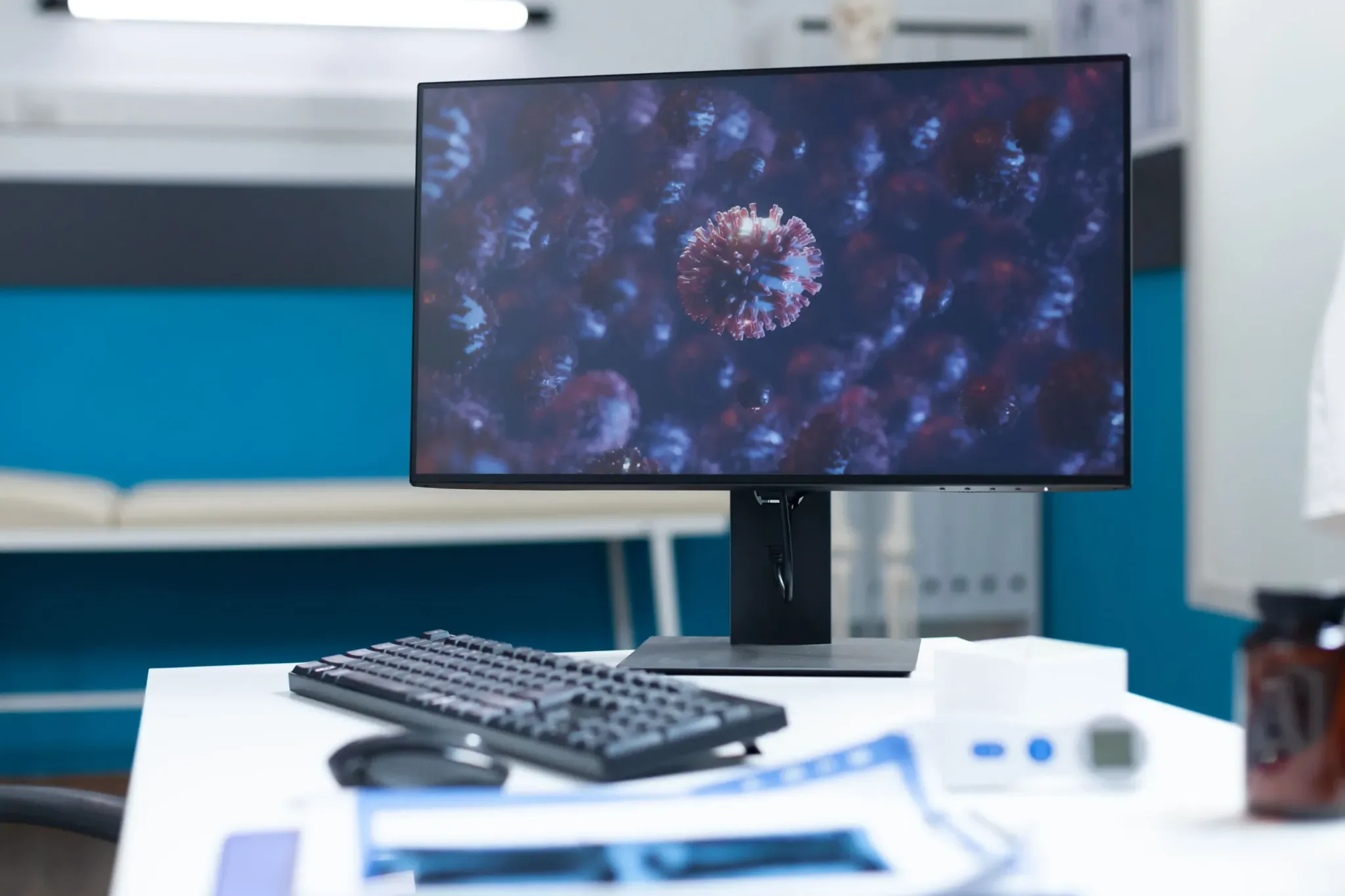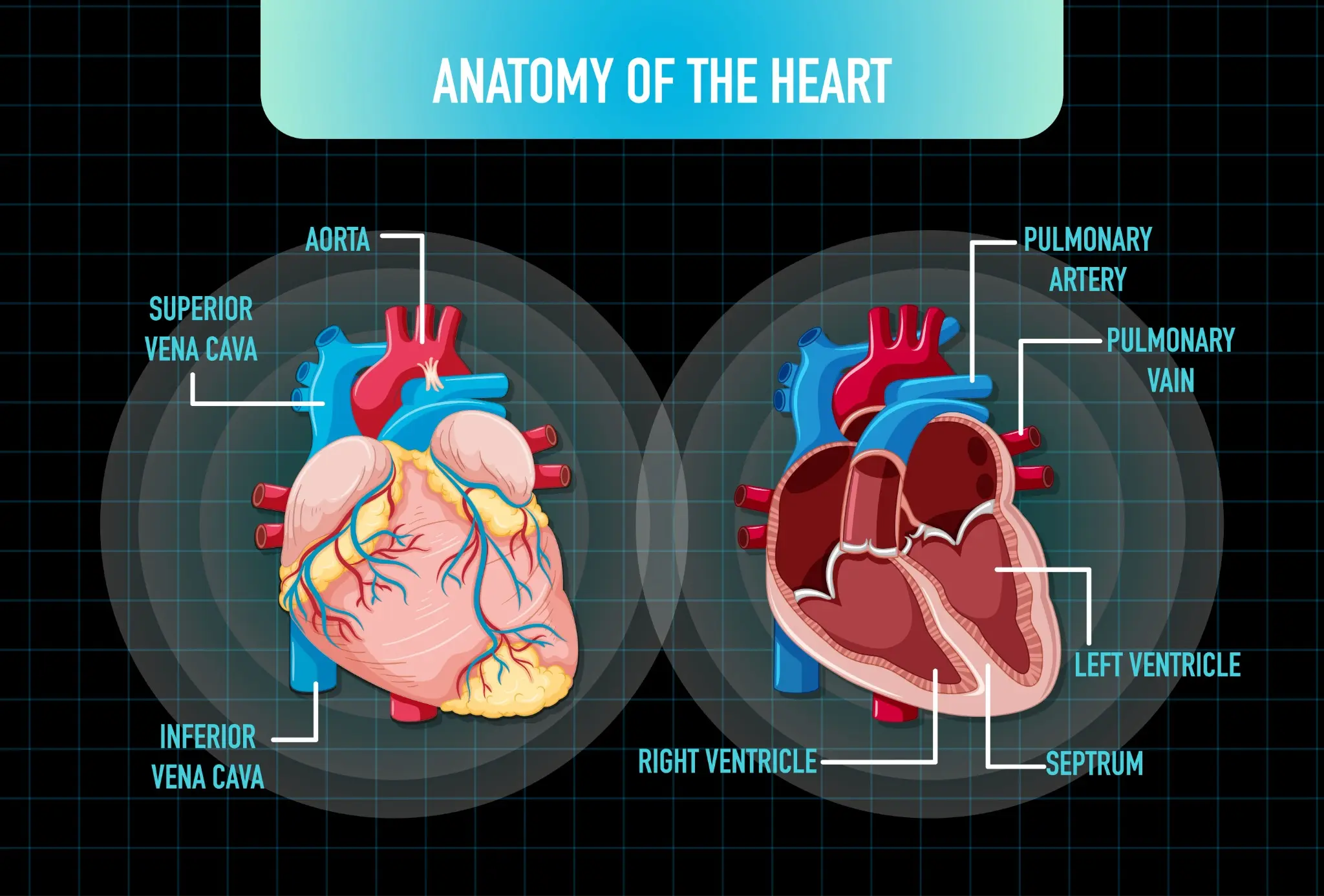Allergy Screening
Also known as: Allergy Panel - Adult Screening - 1
Allergy Screening Test Overview
An allergy is a hypersensitivity disorder of the immune system that causes undesirable reactions to certain substances like food, dust, pollen, drugs or even animal dander. These reactions normally do not occur in others. The substance causing the reaction is an allergen. Immunoglobin E is an antibody that the body produces in case of an allergic reaction. Allergy screening is often used as an alternative to Phadiotop test for detecting allergies along with Total IgE test. Total IgE test is a blood test used to measure the complete IgE levels in the blood, but it does not indicate what is the specific allergen causing the reaction.
Test Overview
Allergy screening tests are simple medical tests. This is an important way to determine if a person is allergic to certain substances. They allow doctors to diagnose allergies quickly and accurately. There is no need for expensive or invasive diagnostic procedures. It's important to talk to your doctor before undergoing any type of allergy test. This will enable them to evaluate your history. They can then decide which test might be right for you.
What is an Allergy?
An allergy is an immune system hypersensitivity condition. It results in unfavourable reactions to specific items. These reactions could be to various items. These include food, dust, pollen, medications, or even animal dander. Other people typically do not have these reactions.
An allergen is an agent. It triggers the reaction. The body creates the antibody immunoglobin E in the event of an allergic reaction. Along with the Total IgE test, allergy screening is frequently used for the detection of allergies. It is used as an alternative to the Phadiotop test. The total IgE test measures total IgE levels in the blood. But it does not identify the specific allergen that is causing the reaction.
Who should get an allergy screening test?
-
People with a family history of allergies
-
Those who experience frequent and/or severe allergic reactions
-
Those with asthma or other respiratory problems
-
Those who have chronic eczema or hives
-
People who have had anaphylaxis
-
Children under the age of five
-
People who consume certain foods and drinks frequently
-
Individuals taking medications that can cause allergic reactions
-
People exposed to environmental allergens. These could be dust mites, pollen, pet dander, and mold
-
Blood tests measure the amount of IgE antibodies in the bloodstream.
These tests are reliable. They can detect many allergens at once. These include foods, mold, pollen, chemicals, metals, and leather.
Written by: Dr.Shibani R, Medical Writer, Medical Affairs
Reasons for Undergoing the Allergy Screening Test
The allergy screening test detects specific IgE antibodies in the blood, indicating an allergic response to various substances. This test is essential for identifying sensitivities to common allergens, including pollen, dust mites, mould, pet dander, foods, and insect venom. By measuring the levels of these antibodies, healthcare providers can diagnose conditions like allergic rhinitis, asthma, and food allergies.
There are several important reasons why individuals may choose to undergo an allergy screening test.
- It helps identify the underlying causes of chronic or recurrent respiratory symptoms, such as sneezing, nasal congestion, and wheezing, which may suggest allergic rhinitis or asthma.
- It aids in diagnosing and effectively managing skin conditions like eczema, contact dermatitis, urticaria, and angioedema. Additionally, the allergy screening test can determine if symptoms are due to food allergies or insect stings, particularly in cases of severe reactions like anaphylaxis.
- It also identifies allergic reactions to medications, latex, or environmental allergens such as mould and pet dander.
- Furthermore, the allergy screening test is beneficial for evaluating chronic conditions like sinusitis, where an allergic component may be suspected, and for developing personalised treatment plans for unresponsive symptoms.
Preparation For Allergy Screening Test
Getting ready for an allergy screening test can feel overwhelming, but with the right approach, it's a simple process. Understanding the basics of allergy screening test preparation can help ease your worries and ensure accurate results.
Here’s how you can prepare:
- No fasting needed: Unlike some tests, allergy screening usually doesn’t require you to fast.
- Consult your doctor: Let your doctor know about all medications you're taking, especially antihistamines, steroids, or antidepressants—they can affect results.
- Avoid certain medications: Some tests (particularly skin prick tests) require stopping antihistamines and related drugs for 48–72 hours, but for blood-based IgE tests like ImmunoCAP, stopping medications is usually not necessary unless advised by your doctor.
- Inform about recent infections: Any cold, flu, or infection should be disclosed beforehand as it may skew results.
- Get adequate sleep: Being well-rested can help your body respond normally to allergens.
- Stay hydrated: Drinking water keeps your blood flowing well, which makes blood collection smoother.
Procedure of the Allergy Screening Test
When you're heading in for the test, it's natural to wonder what to expect. Thankfully, the allergy screening test procedure is straightforward and relatively quick.
Here's how it typically works:
- Step 1: Consultation: You’ll start with a brief discussion about your symptoms and history with allergies.
- Step 2: Sample collection: A small sample of your blood is taken from a vein in your arm. This is usually painless and takes only a few minutes.
- Step 3: Lab analysis: Your blood is sent to a lab, where it is tested for Immunoglobulin E (IgE) antibodies. High IgE levels can indicate an allergic reaction.
- Step 4: Allergen panel: The lab screens your blood against a panel of common allergens such as pollen, dust mites, foods, and pet dander.
- Step 5: Results – You will typically receive your allergy screening test report within 24 to 48 hours.
The allergy screening test procedure is a low-risk and efficient way to find out what may be triggering your symptoms.
Symptoms That May Call For Allergy Screening Test
If you’ve been feeling unwell and can’t quite figure out why, it might be time to consider an allergy screening. Many symptoms can point to an underlying allergy, and identifying them early is key.
Here are some signs that suggest you may benefit from the test:
- Frequent sneezing or nasal congestion: Especially if it's seasonal or occurs in specific environments.
- Persistent coughing or wheezing: Unexplained asthma-like symptoms could be allergy-related.
- Itchy, watery eyes: Common in people allergic to dust, pollen, or pet dander.
- Recurring skin rashes or hives: Especially after eating certain foods or coming into contact with unknown substances.
- Stomach discomfort: Bloating, cramping, or diarrhoea may signal a food allergy.
- Fatigue or headaches: These can sometimes be linked to environmental allergies.
- Anaphylaxis in the past: A severe reaction in the past warrants screening for the allergen cause.
Allergy Screening Test Interpretation
Knowing your allergy screening test report is crucial for taking the next step. The test identifies specific IgE antibodies in your blood that are linked to allergic reactions.
Here’s what your results might show:
- Negative result: No specific IgE antibodies were found. This means you're likely not allergic to the substances tested.
- Positive result: Specific IgE antibodies were detected against one or more allergens, which may indicate sensitization or a potential allergic response. Clinical correlation is required to confirm diagnosis.
- Borderline levels: May require further testing, like a skin prick test or oral food challenge.
Factors That Can Affect the Allergy Screening Test Result
Several elements can influence the accuracy of your test, which is why preparation and timing are important. These factors can sometimes lead to false positives or false negatives.
Key influencing factors include:
- Medication use: For blood-based IgE tests (ImmunoCAP), antihistamines do not affect results, but oral or injected corticosteroids may reduce IgE levels over time. Always inform your doctor about medications.
- Recent illness: A cold, infection, or fever might alter your immune system’s behaviour.
- Age: Children and elderly individuals may show different immune responses.
- Time of year: Seasonal allergies may show higher antibody levels during high-pollen months.
- Chronic stress: Ongoing emotional stress may suppress or overreact immune responses.
- Sample handling: Errors in collecting, storing, or transporting the blood sample could impact results.
- Cross-reactivity: Sometimes the immune system reacts to substances similar to the actual allergen, leading to unexpected results.
Understanding these variables helps ensure your doctor can interpret the allergy screening test report correctly.
Conclusion
An allergy screening test is a reliable way to detect triggers and better manage your health. With timely results and minimal preparation, it gives you clarity and confidence to handle allergic conditions.
For trusted, accurate, and convenient testing services, choose Metropolis Healthcare. With over 40 years of diagnostic excellence, NABL & CAP accreditation, and a seamless home collection service, they ensure quality care you can count on.
List of Parameters Considered During the Allergy Screening Test
The allergy screening test evaluates several key parameters to determine the presence and severity of allergies:
- Skin Tests: During skin tests (skin prick, intradermal, or patch tests), a small amount of an allergen is introduced into the skin. The reaction is observed for signs of allergy, such as localised redness, swelling, elevation, or itchiness, indicating an allergy to the specific allergen tested.
- Blood Tests: Blood tests, like the ImmunoCAP test, measure the levels of Immunoglobulin E (IgE) antibodies in the blood. High levels of specific IgE antibodies indicate an allergy to the corresponding allergen.
- Oral Food Challenge: During an oral food challenge, small amounts of a suspected food allergen are ingested under medical supervision, and the patient is observed for signs of an allergic reaction. The allergy screening test helps confirm or rule out food allergies and distinguishes between true food allergies and other forms of food intolerance or sensitivity.
Home Collection for Allergy Screening Test Near You
Opting for Metropolis Healthcare's home collection service for your allergy screening test offers numerous benefits. A skilled phlebotomist will visit your home to collect blood samples, ensuring comfort and safety while adhering to the highest standards of sample handling. This approach minimizes the stress associated with traditional lab visits and allows you to undergo testing in a familiar environment without compromising accuracy. You can expect timely and reliable allergy screening test results or allergy screening blood test results, as Metropolis Healthcare is committed to make healthcare accessible. Their focus on quality diagnostic solutions means that you can expect an accurate and actionable information conveniently at your doorstep. This service is particularly beneficial for individuals with mobility issues or those who prefer the convenience of home testing.
Allergy Screening Test Price in Different Cities
The cost of an allergy screening test can vary depending on your location and the diagnostic centre. While the test is standard across India, prices may differ slightly based on services like home collection, allergen panels, and local lab infrastructure.
Here is a quick look at estimated pricing in major cities:
|
City |
Approximate Cost (INR) |
|
₹ 5500 to ₹ 6500 |
|
|
₹ 5500 to ₹ 6500 |
|
|
₹ 5500 to ₹ 6500 |
|
|
₹ 5500 to ₹ 6500 |
Prices are approximate and may vary slightly. Always confirm with the diagnostic provider before booking.
Allergy Panel - Adult Screening - 1 Price
Metropolis Healthcare is a leading diagnostics centre and pathology lab in India equipped with the latest state-of-the-art technologies that provides the Allergy Panel - Adult Screening - 1 with a clear pricing structure.
The Allergy Panel - Adult Screening - 1 Price in Ghaziabad is ₹ 6,105 .
We are committed to deliver accurate and quality results from the best labs in India with complete transparency regarding test cost and turnaround time. No matter where you are, we strive to offer patients high-quality service that is affordable and accessible.
Frequently Asked Questions
It may also be done in cases of suspected allergies due to certain inhalants and environmental factors for further diagnosis. The common symptoms are:
- Itching
- Running nose, sneezing, coughing
- Diarrhoea
- Hives
Certain severe cases may also lead to anaphylactic shock.
The test is used to screen for possible allergies due to pollen, animal dander, trees, grass, weed, mite, insects etc.
Based on these results further specific testing is recommended.
Allergy screening test measures the IgE mediated response to certain inhalant allergens. Further tests to a specific allergen will help in further diagnosis.
Allergy screening test requires a blood sample. A tourniquet (elastic) band is placed tightly on the upper arm. The patient is then asked to make a fist. This helps in the build-up of blood filling the veins. The skin is disinfected before needle insertion and the blood sample is collected in vacutainer.
Positive result indicates presence of an atopic allergy to inhalants. Increased IgE levels indicate that the body is allergic to something. What is the exact source of allergy (allergen) will require further specific testing for the allergen. Based on the symptom, age, environmental allergens, and region wise allergens further testing may be required for specific diagnosis.
Negative result may require other tests for differential diagnosis.
The result of an allergy screening test will depend on the specific test being performed. In general, the results of an allergy screening test may indicate whether a person is allergic to a particular substance or not. Blood tests may measure the level of immunoglobulin E (IgE) antibodies in the body. These can indicate an allergic response.
(IgE-specific antibody) of most patients with food allergy shows negative. However, the fact that they have a history of allergic reactions to foods or the history of other manifestations of atopy, in addition to an eczema rash, there is no doubt that it is a food allergy.
Skin allergy tests and blood allergy tests are performed as needed. This depends on a patient’s symptoms. In general, these tests can be done once every one to two years unless your allergist/immunologist thinks you have developed new allergies or lost old allergies.
Children can be allergic to the same things that adults are allergic to. These include pet dander, dust mites, pollen, food, and insects. It is important to remember that children may react differently than adults.
Testing for allergies on the skin carries very little risk. The actual test is painless. Red, itchy skin at the test sites is the most typical adverse reaction.
- IgE Test
- Allergy Test
An allergy screening test is a diagnostic tool used by healthcare providers to determine if an individual has an allergic reaction to specific substances like pollen, mould, pet dander, foods, or insect stings. The tests can be skin prick tests, blood tests, or oral food challenges.
The allergy screening test price varies depending on the type of test, location, and healthcare provider. Generally, skin prick tests and blood tests can range from a few thousand to several thousand Indian Rupees, but exact costs should be verified with the healthcare provider or insurance company.
The allergy screening blood test detects specific IgE antibodies in the blood, which indicate an allergic response to various substances. This test can identify sensitivities to common allergens, including pollen, dust mites, mould, pet dander, foods, and insect venom. By measuring the levels of these antibodies, healthcare providers can diagnose allergic conditions such as allergic rhinitis, asthma, and food allergies. Unlike skin tests, blood tests are safer for individuals with severe allergies or certain skin conditions. Allergy screening test results help doctors tailor treatment plans, guiding patients in avoiding triggers and managing symptoms effectively.
The allergy screening test reports indicate whether an individual has an allergy to specific substances. Positive results show the presence of IgE antibodies or skin reactions, confirming an allergy, while negative results rule out the suspected allergen as the cause of symptoms.
If the allergy screening test reports are positive, it means the individual has an allergy to the tested substance. The healthcare provider will develop a treatment plan, which may include avoiding the allergen, using medications like antihistamines or corticosteroids, immunotherapy, or carrying emergency epinephrine for severe allergies.
The benefits of the allergy screening test include accurate diagnosis of allergies, identification of specific allergens causing symptoms, development of targeted treatment plans, improvement in symptom management, and prevention of severe allergic reactions like anaphylaxis.
Generally, fasting is not required before taking an allergy screening test. However, patients may be advised to stop taking certain medications like antihistamines a few days before the test to ensure accurate results.
The most common foods that lead to allergies include peanuts, milk, eggs, soy, wheat, fish, shellfish, and tree nuts. These foods are often referred to as the "big eight" allergenic foods.
Allergies can vary in severity over time and age. Some allergies, especially those to milk, eggs, soy, and wheat, may resolve in children as they grow older. However, allergies that begin in adulthood are more likely to persist. The severity of allergies can also fluctuate, and some people may experience worsening symptoms over time.
Allergy screening test results are usually available after 48 hours, although this may vary depending on the healthcare provider and the time/day when the sample was collected and processed.
Yes, children can safely undergo allergy testing with guidance from a paediatrician or specialist.
You can book online through Metropolis Healthcare's website or call for home collection service.
Test results are emailed or can be accessed through the Metropolis Healthcare website or app.
Only mild discomfort during blood draw; most people experience no significant pain or issues.
Ratings & Reviews (0)
Why Metropolis?
Metropolis has a team of 200 senior pathologists and over 2000 technicians delivering diagnostic solutions in the areas of routine, semi specialty and super specialty domains like Oncology, Neurology, Gynaecology, Nephrology and many more.
We offer a comprehensive range of 4000+ clinical laboratory tests and profiles, which are used for prediction, early detection, diagnostic screening, confirmation and/or monitoring of the disease.





















 WhatsApp
WhatsApp